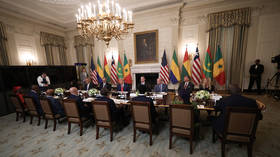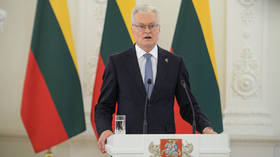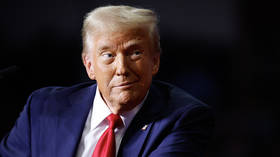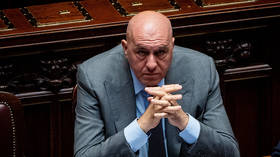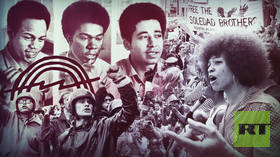US revokes visa of Africa’s first literature Nobel laureate
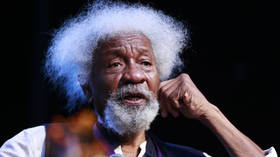
Washington has revoked the US visa of Africa’s first Nobel laureate, Nigerian author Wole Soyinka, and effectively banned him from entering the country, he has announced.
Soyinka, a long-time vocal critic of President Donald Trump’s “hardline” migration policies, announced the revocation at a press conference in Lagos, Nigeria, on Tuesday. The US consulate notified him on October 23, instructing him to surrender his visa for cancellation, citing “additional information” that has emerged since the travel permit was issued.
“I have no visa, I am banned obviously from the United States,” he said.
The veteran author described the consulate’s letter as “a rather curious love letter” and “one of the most humorous requests” he has ever received.
The move comes amid the Trump administration’s tightening immigration rules following his return to the White House in January 2025. In July, the US State Department announced changes to its “reciprocal non-immigrant visa policy,” cutting the duration and tightening entry conditions for most travelers from countries including Nigeria.
Soyinka, 91, who won the Nobel Prize in Literature in 1986, has been a regular visiting professor at major US institutions, including Harvard and Yale. His works include the novel Chronicles from the Land of the Happiest People on Earth and The Man Died, a prison memoir published after his 22-month detention during the Nigerian civil war between 1967 and 1969 for attempting to mediate a ceasefire.
He had previously held US permanent residency but tore up his green card and renounced it in protest of Trump’s election in 2016.
Last month, he declined a visa re-interview request from the consulate, and described Trump as “Idi Amin in white face,” a reference to the notorious Ugandan military dictator whose rule from 1971 to 1979 became synonymous with violence and widespread human rights abuses.
Soyinka admitted on Tuesday that the comment could have contributed to the revocation of his visa.
“When I called Donald Trump Idi Amin I thought I was paying him a compliment,” Soyinka said.
